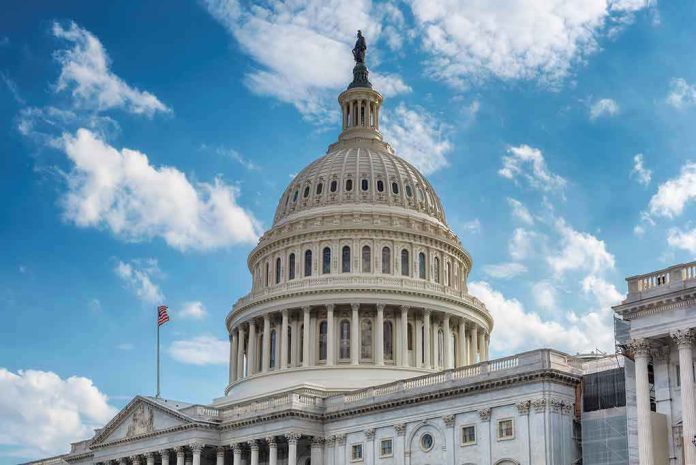
Newly released email records reveal Jeffrey Epstein’s deep connections in Washington, implicating elites far beyond Trump, raising concerns about unchecked power and influence.
Story Highlights
- Epstein’s connections extend beyond Trump, implicating bipartisan elites.
- Emails reveal frequent communications with powerful figures.
- Congressional inquiries intensify, demanding transparency.
- Systemic failures in oversight and accountability highlighted.
Epstein’s Widespread Influence in Washington
Newly released emails and documents have uncovered the extensive reach of Jeffrey Epstein’s connections in Washington, D.C., which extend far beyond his known ties to Donald Trump. These documents, part of a broader release of over 900 pages, reveal frequent communications and meeting requests between Epstein and a wide array of political, legal, and business elites. This network indicates a bipartisan reach, suggesting that Epstein wielded significant influence among powerful figures who were willing to engage with him despite his criminal history.
The implications of these revelations have intensified public scrutiny and prompted Congressional inquiries into the breadth of Epstein’s influence. The House Oversight Committee has issued subpoenas for two decades of records related to Epstein’s activities, seeking testimony from key figures including former Presidents Clinton and Trump, as well as former attorneys general. These actions underscore the urgency to address the systemic failures in oversight that allowed Epstein to maintain these relationships despite his criminal record.
Systemic Failures in Oversight and Accountability
The Epstein scandal highlights significant systemic failures in political and legal accountability. Despite early warnings and reports of Epstein’s criminal activities dating back to the late 1990s, federal action was delayed for years, culminating in a controversial plea deal in 2008. This deal, negotiated by then-U.S. Attorney Alexander Acosta, is often cited as a glaring example of elite impunity. The current release of emails and documents underscores the need for reforms in prosecutorial discretion and transparency in high-profile investigations.
The ongoing Congressional investigation aims to uncover the full extent of Epstein’s Washington connections and the mechanisms that enabled him to exert such influence. The investigation has already faced challenges, with the Department of Justice agreeing to release some records while withholding others due to ongoing investigations and privacy concerns. This has led to increased calls for accountability and transparency in government operations.
Implications for Political and Social Institutions
The revelations of Epstein’s widespread connections have significant implications for political and social institutions. In the short term, they have heightened political tensions and caused reputational damage to implicated individuals. In the long term, they may lead to reforms aimed at preventing similar abuses of power and ensuring greater accountability for elite networks. The scandal has eroded public trust in legal and political institutions and increased polarization, as partisan actors use the situation for political gain.
As the investigation continues, the focus remains on ensuring that justice is served and that institutional safeguards are strengthened to prevent future misconduct. The Epstein case serves as a cautionary tale of the dangers of unchecked power and the need for transparency and accountability in all levels of government and society.
Sources:
Just Security: Epstein-Maxwell Timeline
Wikipedia: Epstein Client List


